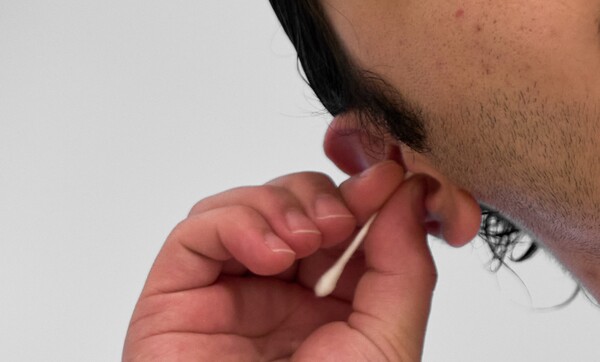Accidents such as falls, cuts, and insect bites that occur while on vacation can be recovered from without major problems if proper first aid is administered. However, improper first aid can worsen the situation.
“There was a patient who tried to remove an insect from his ear with a cotton swab, but it went deeper, leading him to the emergency room. Another patient was stung by a jellyfish in the sea and applied vinegar, which caused the skin to worsen,” said Professor Lee You-jin of the Emergency Medicine Department at GangNeung Asan Hospital Regional Emergency Medical Center. ‘These are common accidents at vacation spots, but improper first aid can worsen the injury, so it is important to know the correct response.”

◆If an insect enters the ear, use a drop of cooking oil: While sleeping outdoors or in a lodging facility, insects may enter the ear. In most cases, people attempt to remove the insect with a cotton swab or tweezers, which can cause injuries inside the ear and push the insect further in.
If the insect is still alive, you may hear a loud buzzing sound inside the ear. Panicking and attempting to remove it forcefully can be dangerous. In such cases, it is advisable to drop one or two drops of cooking oil or olive oil into the ear to suffocate the insect, then seek safe removal at the nearest emergency room or otolaryngology clinic.
◆ Do not use vinegar on jellyfish stings: Jellyfish stings are also common during swimming, and while most jellyfish found along the Korean coast are not deadly, they can cause skin rashes, pain, and itching at the sting site. Avoid using vinegar or similar substances on the affected area.
“In some jellyfish species, vinegar can actually stimulate the stinging cells, causing more toxins to be released,” Professor Lee said. “The affected area should be rinsed with seawater, not tap water or bottled water, and any remaining tentacles should be carefully scraped off using a plastic tool like a credit card.” If symptoms persist for more than an hour or swelling is severe, it is advisable to seek medical attention as pain relievers or antihistamines may be necessary.

◆Keep the snake-bitten area below heart level: Snake bites also frequently occur in mountainous areas and valleys. Many people believe that they should cut the wound with a knife or suck out the venom with their mouth, as seen in movies. However, this can cause infection and bleeding, making it a very dangerous action.
The correct first aid for a bitten area is to keep it below heart level, secure it with a splint or cloth to prevent movement, and immediately call 119. “Tightly binding the arm or leg can block blood flow and cause tissue necrosis. When binding, leave enough space for one finger to fit between the binding and the wound,” Lee advised.
◆Do not use over-the-counter hemostatic agents on lacerations: Fingers, toes, and the face have dense blood vessels, so lacerations can cause severe bleeding. Applying over-the-counter hemostatic agents or unproven folk remedies to the wound can cause infection and hinder recovery.
Professor Lee said, “The most basic and effective method for stopping bleeding is to apply clean gauze or cloth to the wound and apply continuous pressure.”
◆Immediately call 119 if heatstroke is suspected: If you experience confusion, hot skin, and lack of sweating during outdoor activities, heatstroke should be suspected. Heatstroke is a dangerous emergency condition where the body’s temperature regulation center malfunctions, causing the body temperature to rise above 40°C, which can lead to organ damage or death.
If you discover a patient, immediately call 119, move them to a shaded, cool area, loosen their clothing, and lower their body temperature using a damp cloth or fan. If available, apply ice packs to the neck, armpits, and groin. However, never force water or beverages into an unconscious patient, as this can cause airway obstruction.
◆Breathing difficulties after a bee sting are a warning sign of anaphylaxis: Bee stings are common during camping, hiking, or river trips. While most cases only cause localized pain or swelling, they can lead to anaphylaxis, a life-threatening allergic reaction, in people with allergies.
Anaphylaxis is a systemic allergic reaction to a specific substance, causing a sudden drop in blood pressure and potentially leading to breathing difficulties or loss of consciousness. If you experience sudden swelling of the lips, face, or throat, or feel chest tightness or shortness of breath after a bee sting, suspect anaphylaxis. In such cases, do not hesitate to call 911 immediately.
Even if symptoms are mild, people who have previously experienced severe hives or difficulty breathing after a bee sting should rest and seek medical attention. In particular, individuals with a history of anaphylaxis should carry an epinephrine auto-injector (such as an EpiPen) at all times.
“Proper emergency care can save precious lives in all situations, from minor scrapes to heatstroke and lightning accidents,” Professor Lee said. “Emergency care is the basic ‘travel safety rule’ that everyone should know.”

